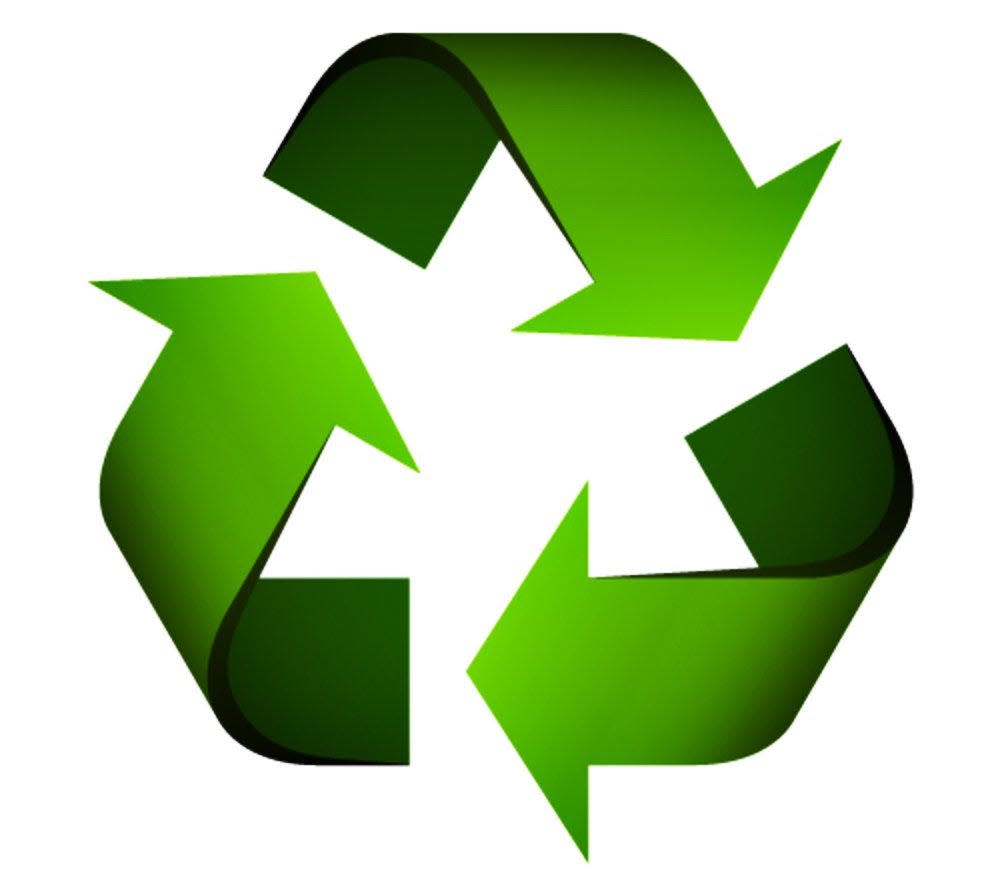Szydlowski: Recycling Has Problems

Columbia recently announced that it would no longer pick up recycling for a while due to staffing shortages. While this seems like a major setback for the environment, recycling is a rapidly failing practice.
And it’s not just Columbia. Nearly every community struggles with what to do with all the waste that it produces. In just the United States, 251 million tons of solid waste is discarded each year. About one-third of that waste is recycled or composted; about 12 percent is burned; and the rest, around 55 percent, is buried in landfills. Sounds simple. But many regional landfills are quickly filling up, and cities need to develop new ones, costing taxpayers millions of dollars. Because of this, the cost of discarding trash is going up for everyone every year.
Recycling to the rescue?
Not everyone recycles and research shows that is due to either laziness or a lack of concern for the environment. If everybody just recycled more of their waste we would be in much better shape, right? It would be nice if that were true, but it’s not so simple.
Recycling is a very messy business and it has gotten even messier the last couple of years. People should absolutely recycle. However, recycling alone will not come close to fixing our very expensive waste problem. Recycling has its problems and the avid recyclers may be one of them.
Back off a little
If you are an avid recycler (as I am) you might be causing some of the problem. A growing number of people are so concerned about their environment that they throw way too much into their recycling bins in hopes the material can be recycled. Items that are not able to be recycled complicate and contaminate the recycling stream and contaminated batches go to the landfill.
Some common recycling mistakes are:
• Aluminum foil — It can’t be recycled with cans and there is no market for it. Throw it out.
• Milk and juice cartons — Looks like cardboard, but they are lined with a thin layer of plastic. Discard.
• Soiled paper and cardboard — It can’t be recycled, but it can be composted.
• Plastic utensils — They are recyclable, but are too small and fall through the grates and make it to the landfill.
Lots of sellers, few buyers
Yes, plastics can be recycled, but you need somebody that wants recycled plastic. This
has become a big problem. There are simply not enough industries needing the amount of plastic we produce. Many countries started shipping their plastic to China, which was trying to profit off processing all this plastic. However, things quickly got out of hand.
China could not process all our plastic waste so they started burning and dumping it. In 2017, China’s air was so polluted, and land and water so littered with plastic, that the government banned all countries from sending China their plastic. Countries scrambled to find a new place to dump their waste and, for many, that was Malaysia. However, Malaysia is now becoming polluted and the air toxic.
Recycling as the last resort
Experts say that recycling is imperative but should also be a last resort. Nobody needs the of plastic we are putting into recycle bins. It’s simply too much. The other alternative — throwing it in a landfill or burning it is much worse.
Plastic has quickly become the single biggest source of pollution (air, land, and water) on Earth. We won’t ever stop using plastics. Plastics have a lot of great qualities. Keeping food fresh and healthy is one of them. The problem is single-use plastics. Single-use plastics are things we use for five minutes, then throw away.
Disposable water bottles and plastic shopping bags are the biggest offenders. The good news: the answer to this problem is pretty easy. Stop using them. Even better, it’s not even hard to stop using them. It’s something you can do instantly, and it makes a big difference. Stop using single-use plastics, then recycle the other plastics, and you will be part of the solution.
Mike Szydlowski is a science teacher and zoo facilitator at Jefferson STEAM School.
TIME FOR A POP QUIZ
1. What is a single use plastic?
2. How many pounds of trash does the U.S. produce every year?
3. Of the pounds of trash the U. S. produces, how many pounds gets recycled?
4. If we could force everyone to recycle, would this fix the problem? Why or why not?
5. Develop a plan that would help others reduce their plastic use.
LAST WEEK'S QUIZ ANSWERS
Why do bird moms work so hard to keep the nest clean?
The baby bird droppings would attract predators, so the mom keeps it clean to protect them.
Why do most insects lay so many eggs?
Animals that lay lots of eggs do so because so few of them survive.
Why do black bears spend most of the fall season eating?
They need to eat lots because they won’t eat again while in their den, but their new cubs will feed off of them all winter.
How is the wolf spider mom's behavior different than almost all other spiders?
Wolf spiders stay with their eggs and young while most spiders lay eggs and never return.
What is a marsupial?
A marsupial is an animal that continues to develop its babies in an external pouch.
This article originally appeared on Columbia Daily Tribune: Szydlowski: Recycling Has Problems

